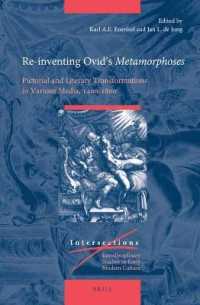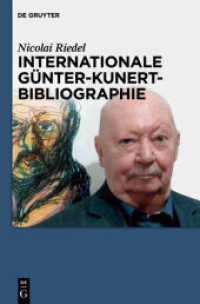- ホーム
- > 洋書
- > 英文書
- > Politics / International Relations
Full Description
This sociological study explores how Ukrainian political elites think, act, and adapt in moments of profound transformation—from the authoritarian drift of the Yanukovych era to the national redefinition under Zelensky during the full-scale war. Using Pierre Bourdieu's theory of practice, the book uncovers in which ways power is embodied and reproduced through the habitus of the elites, their symbolic capital, and field dynamics. Combining in-depth interviews, discourse analysis, and biographical investigation, the study reveals tacit norms, cultural resources, and survival strategies that shaped the behavior of Ukrainian policy makers and shapers. It traces how Ukraine's elites responded to crises—the Euromaidan, Russia's aggression, internal legitimacy struggles—while maintaining forms of continuity invisible to measurement with standard political science tools. By way of moving beyond cliché debates about corruption or democratization, the book paints a more nuanced picture of Ukraine's political field as a space of symbolic struggles shaped by history, class, and postcolonial legacies. It offers both new empirical insight and theoretical innovation, and thereby contributes to a better understanding of how elites operate not just in Ukraine but, in general, in transitional democracies facing external war and internal transformation.








